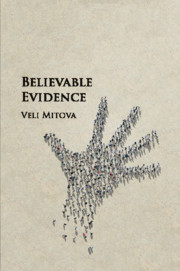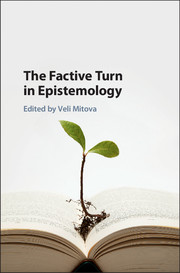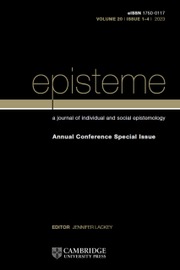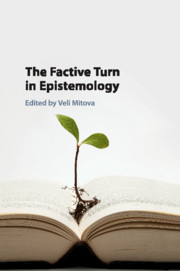Believable Evidence
Believable Evidence argues that evidence consists of true beliefs. This claim opens up an entirely overlooked space on the ontology of evidence map, between purely factualist positions (such as those of Williamson and Dancy) and purely psychologist ones (such as that of Conee and Feldman). Veli Mitova provides a compelling three-level defence of this view in the first contemporary monograph entirely devoted to the ontology of evidence. First, once we see the evidence as a good reason, metaethical considerations show that the evidence must be psychological and veridical. Second, true belief in particular allows epistemologists to have everything they want from the concept of evidence. Finally, the view helps us locate the source of the normative authority of evidence. The book challenges a broad range of current views on the ontology of reasons and their normative authority, making it a must-read for scholars and advanced students in metaethics and epistemology.
- Addresses an important topic in epistemology, adopting a new approach to arguments around evidence and introducing a minimalist alternative to existing views
- Employs philosophical perspectives from the fields of metaethics, epistemology, and metaepistemology, making this volume valuable for a wide range of philosophers
- Engagingly written and accessible to a wide audience, avoiding the technical style commonly found in debates on evidence
Product details
April 2017Adobe eBook Reader
9781316993088
0 pages
0kg
This ISBN is for an eBook version which is distributed on our behalf by a third party.
Table of Contents
- Part I. Solid Metaethical Foundations:
- 1. The standard story
- 2. The beast of two burdens
- 3. Extreme psychologism about reasons
- 4. Truthy
- Part II. Sound Epistemological Structure:
- 5. Truthy psychologism
- 6. Truthy psychologism gives us everything we want
- 7. If E then EB?
- 8. If TB then E?
- Part III. Fruitful Metaepistemic Soil:
- 9. Who can tell us why to care about the evidence?
- 10. Truthy psychologism and the authority of evidence.





